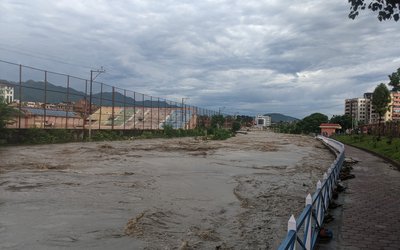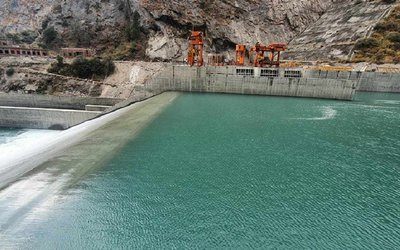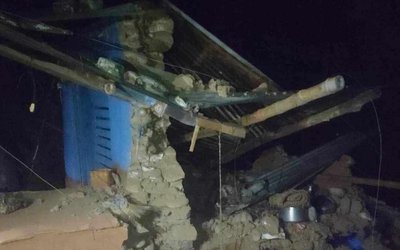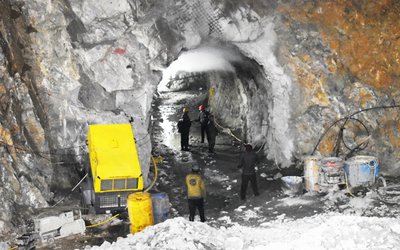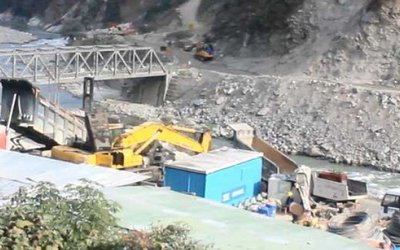
Nepal possesses about 2.27% of the world’s water resources, and it is estimated that there are altogether 6,000 rivers, including rivulets and tributaries, in Nepal. Nepal possesses enormous potential for hydropower development and India always has an interest in it. Nepal – India water relation goes back to 1874, and there are no significant rivers left where Nepal and India have not signed the collaboration agreement in various form. Among many water-related agreements, the Mahakali treaty is the most ambitious and controversial deal enacted between Nepal and India.
The Mahakali treaty was highly criticized since the inception of the package deal, and the controversy flamed further as a result of the difference in the interpretation of the provisions of the treaty. There is a provision to review the agreement after ten years and also the provision of arbitration in the event of disputes, etc., but the treaty was neither reviewed nor have any of the signatory parties yet entered into arbitration process of the deal in spite of immense public pressure and criticism. Pancheshwor Multipurpose Project (PMP) was the center of attraction of the project, but up until now even detail project report (DPR) of the project has not been finalized which was agreed to have been completed within the six months of the enforcement of the treaty. Even after two decades of the implementation of the agreement, there is no progress in the agreed terms in the treaty; instead, it has created a deadlock situation in Nepal-India water relations.
The Mahakali treaty is the first bilateral water resources treaty that was signed when the Panchayat ruling system was overthrown, and Constitutional Monarchical Multiparty Parliamentary system was established in 1990. It integrated the then existing Sarada Barrage and Tanakpur Barrage, Pancheshwor Multipurpose Project and the treaty mentioned the provisions about the prospects of utilization of water of Mahakali River.
Nepal has, and this party has a long history of criticizing the Mahakali treaty. The current Communist Party of Nepal (CPN) is formed by merging the then Communist Party of Nepal (Unified Marxist–Leninist) and Communist Party of Nepal (Maoist Centre) on 17 May 2018 after landslide leftist victory in the election. The UML faction of the CPN always pointed Nepal Congress for the enforcement of the unequitable Mahakali treaty and the Maoist faction still shouted against Mahakali treaty and most importantly one of the reasons for their armed struggle was enforcement of the Mahakali treaty. Interestingly, K. P Sharma Oli, the then coordinator of the team to study the Mahakali treaty is the current most powerful Prime Minister of Nepal.
I believe that the pro-active interest of India to engage in Nepal is mainly because of the changes in the dynamics of geopolitics in the region. Also, the strengthening democracy in Nepal increased level of awareness among its people, and the rise of media and access to information to the general public in Nepal seems further factor for India to give considerable status to Nepal. Thus, it is very high time that the treaty should be re-negotiated keeping every option open; even the option to scrap the existing treaty and begin the fresh initiation for the sustainable use of the waters of the Mahakali River with an objective to benefit both the nation equitably. Now it is an opportunity for the Communist Party of Nepal to demonstrate its nationalist image by correcting the above-discussed points of the Mahakali Treaty. Thus, for the long-term cordial relationship between the two countries, it is high time to review the treaty in detail as soon as possible.

Nabraj Lama
Independent Researcher, Kathmandu. He can be reached at nabrajlama@gmail.com
- Middleman In Kalimati And Balkhu Wholesale Vegetable Market
- Sep 17, 2018
- Pancheshwor: Under A Prolong Controversy
- Sep 03, 2018
